Understanding CAA
Before independence muslim league wanted a separate country for muslims. After partition a separate country was formed and was called “the Islamic Republic of Pakistan”. Similarly BJP has often been criticised for its religious based ideology which is to create a Hindu rashtra. What the BJP always been accused off, the CAA proved that criticism right.
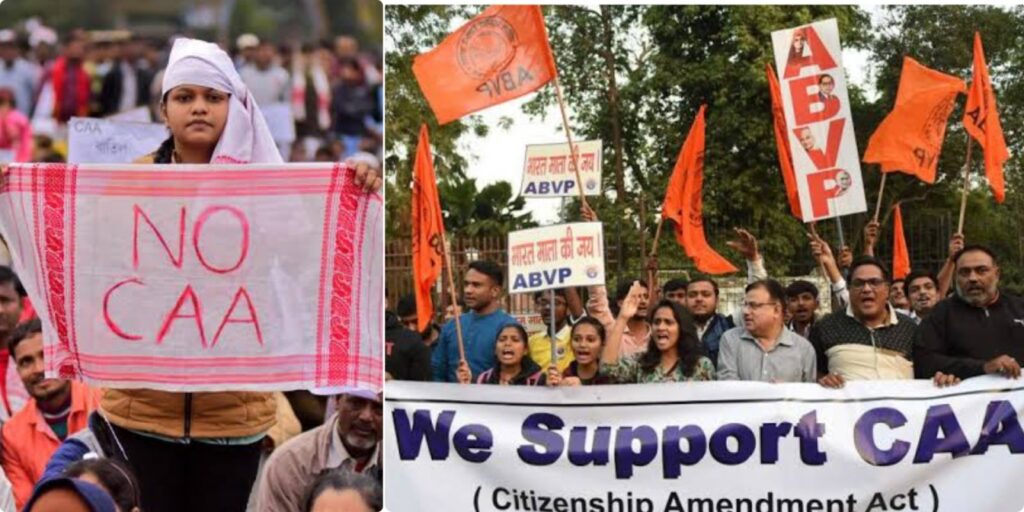
Right: ABVP supporting CAA
In Dec 2019 the ruling party introduced a bill called the CAA where a particular community was left out of the bill. Let’s understand the nitty gritty of the issue.
What is CAA
CAA is the Citizen Amendment Act which has been passed in the parliament on 11 December 2019. This act ensures Indian citizenship to the persecuted minority community of Bangladesh, Pakistan and Afghanistan only.
The controversial Section 2(1) of CAA Act, 2019 reads:
“Provided that any person belonging to Hindu, Sikh, Buddhist, Jain, Parsi or Christian community from Afghanistan, Bangladesh or Pakistan, who entered into India on or before the 31st day of December, 2014 and who has been exempted by the Central Government by or under clause (c) of sub-section (2) of section 3 of the Passport (Entry into India) Act, 1920 or from the application of the provisions of the Foreigners Act, 1946 or any rule or order made thereunder, shall not be treated as illegal migrant for the purposes of this Act.”
In simple words this act states that persecuted Hindus, Sikhs, Buddhists, Jains, Parsis or Christians from these three countries can obtain Indian citizenship. Muslims were excluded from this bill. Major controversy is only on that matter.
Discriminating Bill
India is a secular democracy and exclusion of a particular community stands against the very idea and ethos of India. India has always been a country where minorities always feel proud to be part of the nation. But CAA makes them feel alien in their own country. The Government has always clarified that CAA has nothing to do with the muslims of India. But still exclusion of a particular community from the CAA is wrong.
Many argue that it violates the spirit of the preamble of the constitution of India which gives justice, liberty, equality to all its citizens. And the Govt stance and ruling party’s ideology justifies their argument.
Atheist
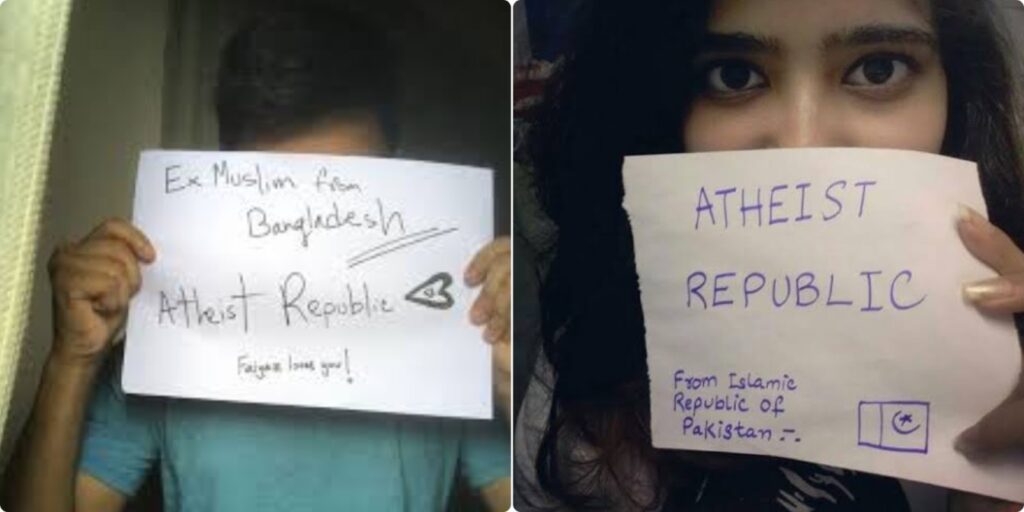
Right: A Girl from Pakistan displaying her Support to Atheism
Atheist are those people who don’t believe in the concept of God. Persecuted atheist haven’t been considered in the CAA. Don’t they deserve justice. As per Gallup survey around 1% of people in Pakistan and Bangladesh are atheists, which numbers upto around 39 lakhs. Being an atheist in a country like Pakistan can be life threatening. They cannot openly declare themselves as atheist, hence lead a secret life. Shouldn’t these types of people be included in the bill?
In CAA the selected citizenship is only given to those who have entered India on or before 31st December 2014. Then what about those who were persecuted after the said date. Why did a date limitation has been put on this bill if the Govt is serious about giving citizenship to persecuted minorities.
Srilanka
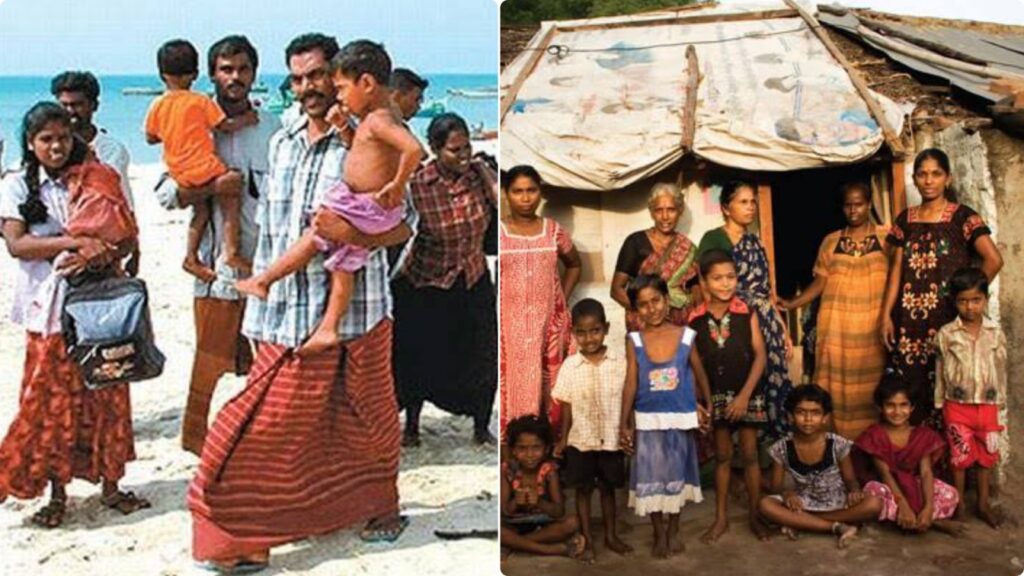
Right: Sorry state of Refugee camps in Tamil Nadu
If the Govt is serious about giving justice to persecuted individuals then why Srilanka is being left out. 70% of the population of Srilanka are Buddhist. There has been violence against Muslims in the recent past. And what about Tamil refugees who are the unfortunate consequence of the civil war between the Sri Lanka’s Govt and Tamil fighters where lakhs of people had been killed. Still there are many tamil refugees in India waiting for Indian citizenship. The CAA would have made some justification if Srilanka also would have been added in the list. But the problem is that the bill only concentrates on muslim majority countries.
Discriminated Muslims
Ahamdis are a different sect of Muslims who don’t believe Mohammad to be the last prophet. Because of this very thought Ahamdiyyas oftenly face discrimination in Pakistan and Bangladesh. In 1974 Pakistan passed a law which considered Ahamdiyyas as non muslims. The most recent hate crime was when a 57 year old Zoology professor Naeemuddin Khattak was shot dead in the outskirts of Peshawar, Pakistan. Similarly Shia muslims also face discrimination for their beliefs. As per Human Rights Watch thousands of Shia muslims have been killed since 2008. Shouldn’t these types of people deserve a place in CAA?
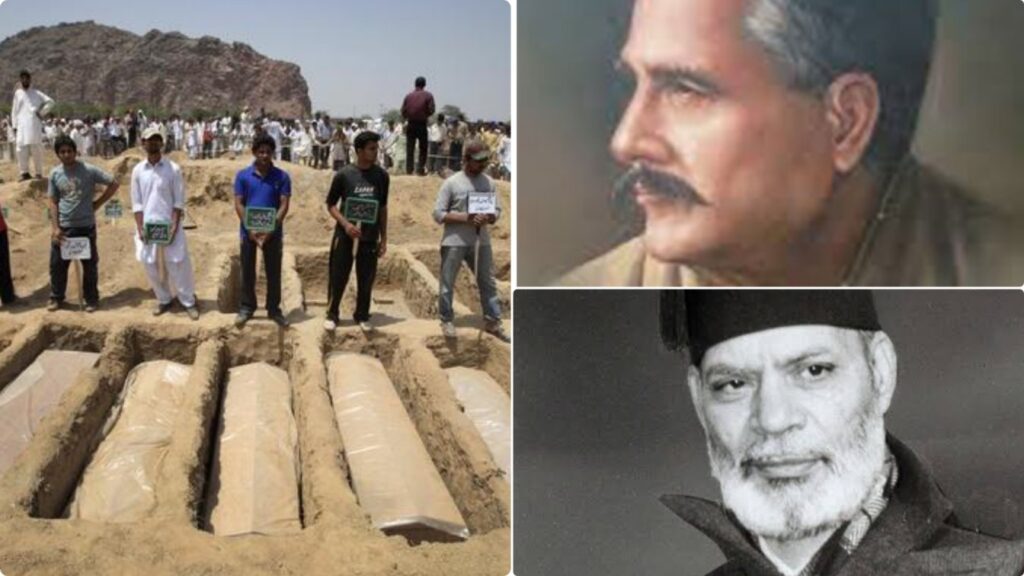
But it is believed that during independence Ahamdiyyas were at the forefront in the demand of a separate muslim country. Advocates of CAA often argue that Ahamdiyyas themselves didn’t want to stay in India, hence they don’t deserve to be included in the bill. But the question is should we consider what a group of people thought 70 years ago? A particular group’s past thinking should be irrelevant in today’s scenario. Govt needs to form its policies on present day situations. Religious based citizenship should be avoided at all costs.
Why CAA is Needed
CAA is the result of civil instability in our neighbouring countries, especially in Pakistan, Bangladesh and Afghanistan. Because these countries failed to protect minorities interest the need for CAA was felt.
In 1947, Hindus constituted 12.9% of Pakistan’s population, but today it has decreased to 2.14 %. Bangladesh’s minorities represented 29% of the population and as per 2011 census minorities population has come down to 9.6%. In India, as per the 1951 census the minority community represented 15.9% of India’s population and as of the 2011 census the percentage grew up to 19.3%.
The population of minorities has increased in India whereas the population of minorities has decreased significantly in our niehboring countries.
One of India’s biggest strengths has been to protect its minority communities’ interests where our neighbouring countries have failed to do it.
Persecution
There have been 600 documented church attacks in Pakistan, most in the world. During November 2015 to October 2016 alone, Pakistan had the highest number of Christians killings in the world. A survey revealed that since 1990 around 95% of all Hindu temples in Pakistan have been demolished or converted. As per a Pakistani ruling party minister around 5000 Hindus migrate to India every year.
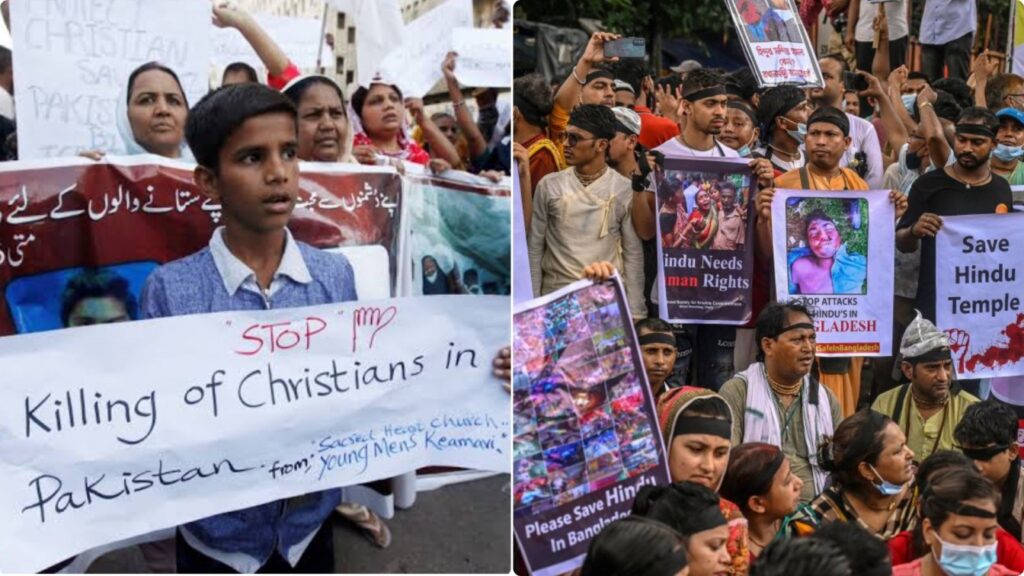
Right: Hindu Community in Bangladesh protesting against Hindu killings
Bangladesh also has similar kinds of issues. Only for name sake it’s a secular country. In a major violence in 2016, 15 temples and 100 homes were damaged. As per a report, in 2017 alone at least 107 people of the Hindu faith were killed, 782 of them were forced to leave the country.
Should India be concerned about the happenings of our neighboring countries? The answer is not so straightforward. Because of India’s interference in 1971, millions of Bengalis were able to escape persecution in Bangladesh. In the 1971 Bangladesh civil war around 2.4 million Bengali Hindus faced genocide. If India didn’t open its door many more would have been killed.
Another point which is not talked about enough is that India is the birthplace of Indic faiths, which are Hinduism, Sikhism, Jainism and Buddhism. If they are religious persecuted in any part of the world, India is the only place where they will find asylum. This is the basic intention of CAA which the critics should also understand. On humanitarian grounds CAA makes a strong argument.
Why not Rohingyas
Myanmar’s Rohingya muslims are the most persecuted group in recent times. Around 30000 Rohingyas were killed between October 2016 to Aug 2017 in Rakhine State, Myanmar. Following the violence around 9 lakhs Rohingyas have become stateless. Many fled to their neighboring countries. India gave temporary shelter to around 40000 Rohingyas.
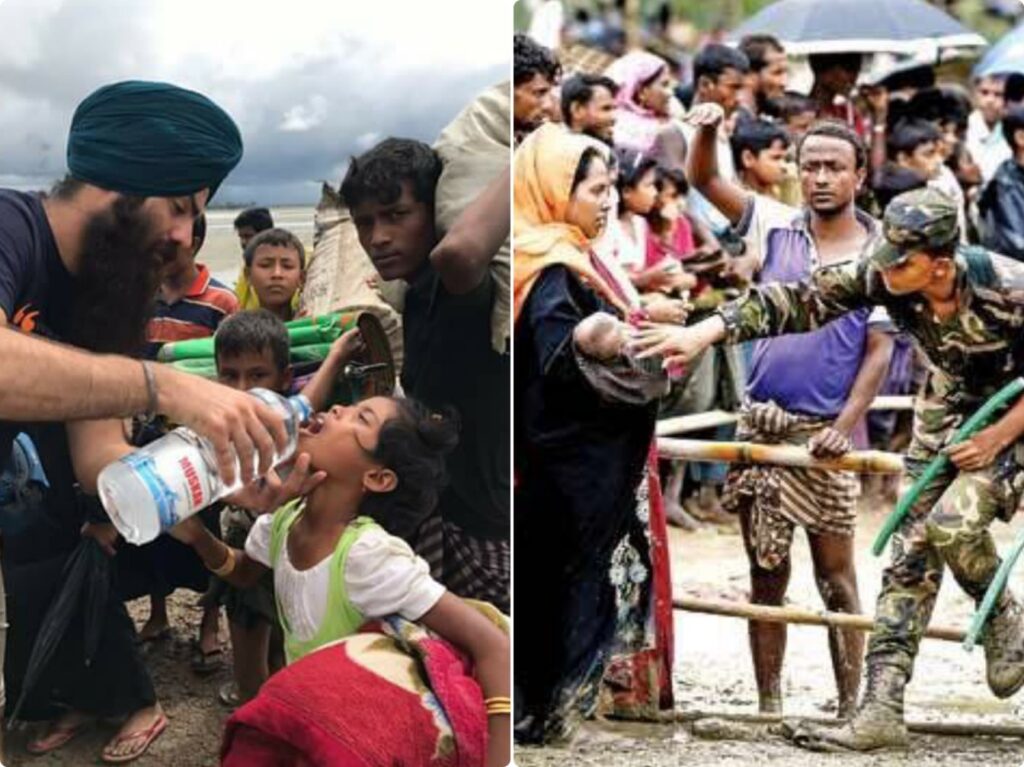
Right: Security personal stoping a refugee to enter into the country
When India is giving citizenship to persecuted groups, then why not the Rohingyas. Is it because they are muslims or is it something else also. On 11 Nov 2019 Bangladesh Prime Minister Sheikh Hasina stated that Rohingyas posed a national threat to their country. Similar concerns are raised by India also. The security caution was raised by our top intelligence which needs to be taken seriously. Because Rohingyas are in a very vulnerable position they could easily be exploited by terrorist groups. They could also be used for human trafficking and high value smuggling rackets. Rohingyas are in such a sorry and desperate state that they are ready to do anything for living. They could also cause social stress.
Humanitarian wise India should help these people but we need to be practical about our national interest. This is one of the reasons why the Govt is not keen on giving asylum to Rohingyas.
Political Agenda
When the Assam NRC list was out, 19 lakhs people were excluded from the list, out of which maximum were hindus. It’s alleged that to protect those people from deportation BJP introduced Citizen Amendment Bill. Is BJP really concerned about giving citizenship to persecuted people or is it just vote bank politics?
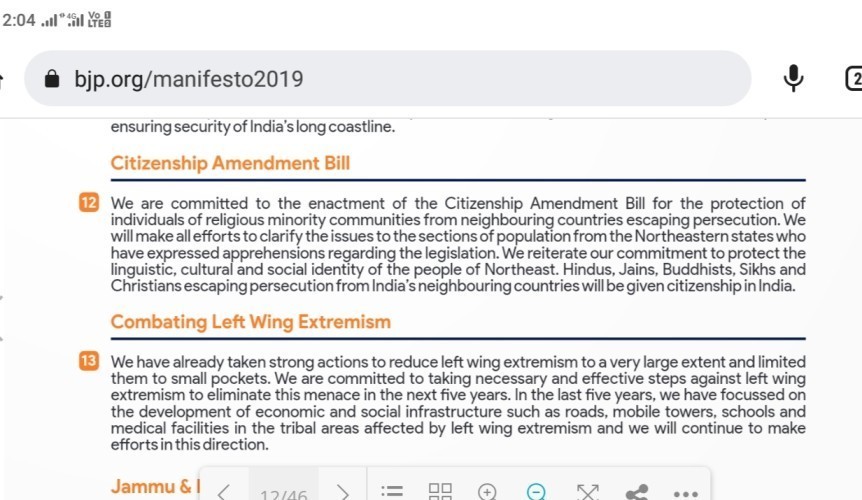
During the CAA debate in parliament Home minister Amit Shah told the house that their 2019 election Manifesto had included CAA and based on that manifesto, people voted for BJP in power. They are just fulfilling people’s mandate. Home Minister was right from his point of view, but the actual reality is that many people don’t read the election manifesto. It’s the people’s fault who don’t read the party’s manifesto and question it. And when a particular party tries to fulfill its manifestos promise we suddenly act surprised. People should become more politically educated.
Senior Congress member Dr. Manmohan Singh also supported the bill in 2003. In 2003 Dr. Manmohan Singh did suggest giving citizenship to the persecuted minorities of countries like Bangladesh. But he never talked of leaving anyone from this bill.
Misguided Protest
After the CAB was introduced in the parliament the initial protest was in Assam. Many Assamese believed that CAB would allow the illegal migrants to get permanent residence in the state. Assamese people have been fighting the illegal migrant NRC issue for a long time.
Soon the protest spread to New Delhi. The maximum protest was in JNU and Jamia Milia University. During this time there were many conflicts between the police and students. Soon the protest spread to the other parts of the country and it resulted in massive violence. It’s hard to understand how violence helps in resolving any issues.
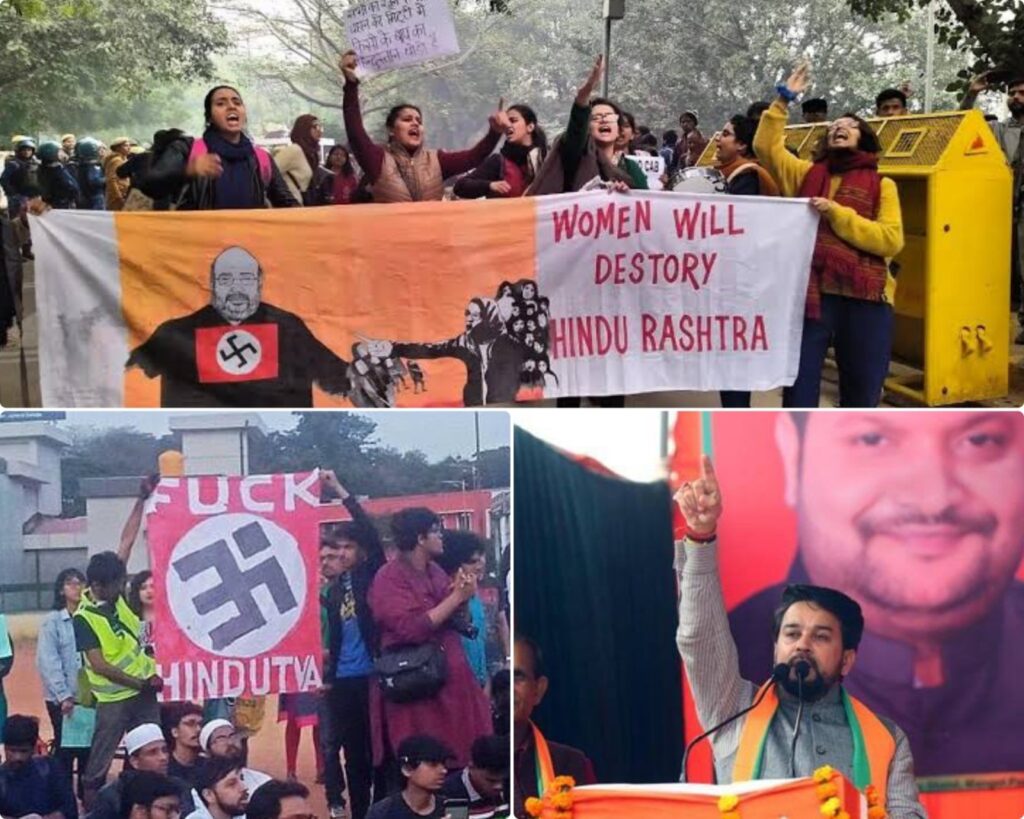
During the CAA issue many protests were misdirected. Hindu religion was targeted. The Swastik sign was insulted. Young woke students rather than addressing the real issue were busy targeting a particular religion. In Aligarh Muslims University while protesting against CAA it was alleged that slogans weree being raised to free Kerala, Assam and Kashmir. Defamatory slogans were shouted. Similarly many BJP party members also made some derogatory statements.
Students protests was increasing and their displeasure turned into a rebellious movement. Because of this misdirected protest the anti CAA campaign lost its credibility. Many women also protested in Shaheen bagh Delhi for many days. Shaheen Bagh protesters were accused of blocking roads and public places. The Central Govt also didn’t take any strong steps to stop these kind protests. It’s alleged that they intentionally didn’t want to stop the protest because BJP believed that all these issues would work in favour of them in the Delhi election. But anyway BJP lost the election, at last the Shaheen Bagh protest was finally stopped because of Corona pandemic.
Consiquence
At the end all this chaos resulted in Delhi riots which started on 23 Feb 2022. Around 50 people were killed. Many shops and personal property were vandalised. Government has been accused of acting late to stop these riots. Neither the students’ agitation nor the Govt action was in the interest of the nation. On the other hand many of the protestors were not aware of the issue, they just flew with the crowd mentality. Even many of the protesters in Shaheen Bagh were not aware about what the CAA actually was. Many Muslims thought that their citizenship was in danger. People were busy listening to fake narratives about CAA. Though CAA had many negative points, but the bill was never about Indian citizens.
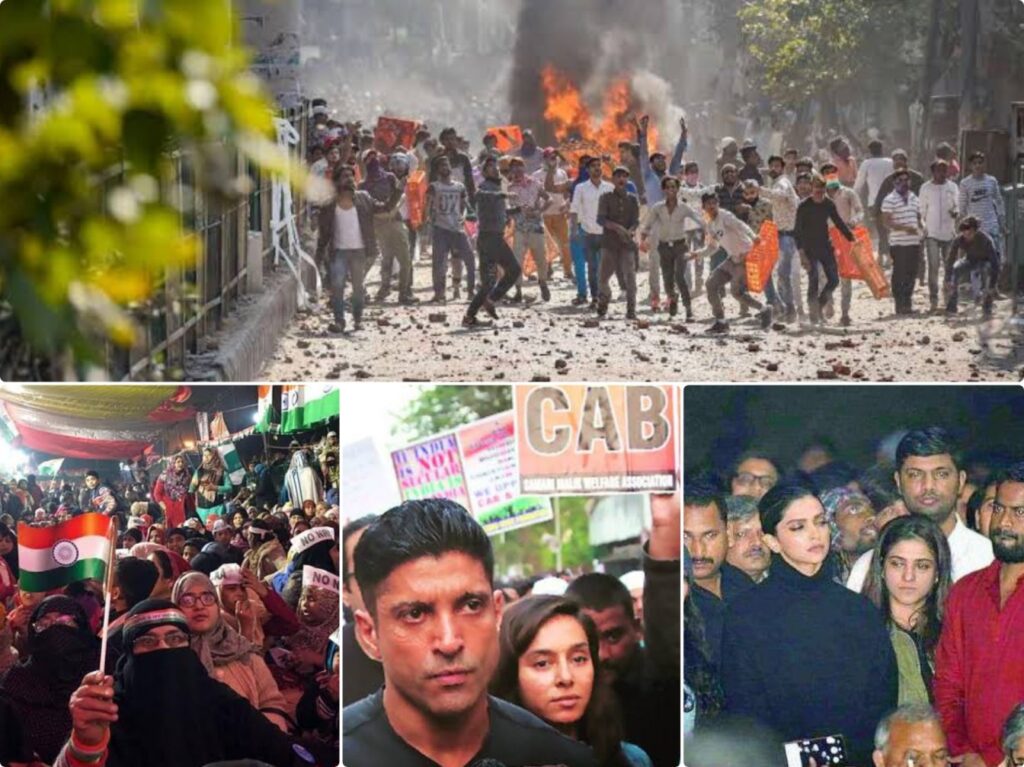
Many Bollywood personalities used CAA protest for their PR stunts. Many YouTubers and twitter personalities also used CAA issue to increase their followers. CAA was just a money crunching content for them.
Present Secnario
The CAA has been passed by both the Lok Sabha and Rajya Sabha. It’s been two years since, but the exact rules of CAA are yet to be framed by the Govt. CAA has been challenged in supreme court and over 140 petitions have been filed against it. Even the United Nation (UN) also has sought permission for an intervention application in the supreme court. All this has been pending since the last two years in the court. The protests had also died down and the issue seems to be slowly forgotten. In morden times we don’t have enough patience to fight a battle in long term.
Ground Reality & Solution
Many persecuted refugees from Pakistan saw CAA as a hope. CAA would have finally give them the citizenship they were waiting for years. But CAA anti protest turned their hope into despair.
Before CAA also, persecuted individuals have been getting citizenship. Between 2016 to 2020, 4177 people were granted Indian citizenship who belonged to the Hindu, Sikh, Jain and Christian community. Since 2014, Nearly 600 muslims from Pakistan, Bangladesh and Afghanistan have also received Indian citizenship.
The provision of citizenship was already there for persecuted people from across the border. Then why the need for CAA was felt? As per the Govt CAA would speed up the citizenship process of these people. The citizenship law which was already in place before the CAA could also have been quickened with effective bureaucracy.
None of the sides are entirely correct or entirely wrong. Each has its own convincing points. But violence in the name of protest should never be accepted. Discrimination against any religion should never be accepted. Similarly insulting a particular religion in the name of protest should also be never accepted. But one thing which we should accept and give a serious thought is the ground reality of our neighbouring countries which prompted the creation of a bill like CAA.

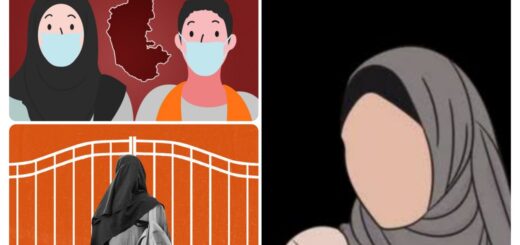
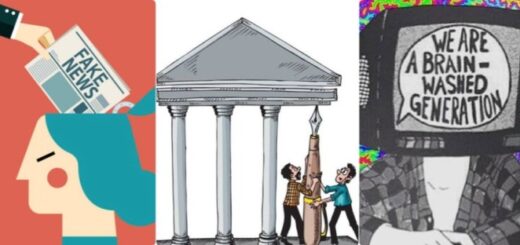
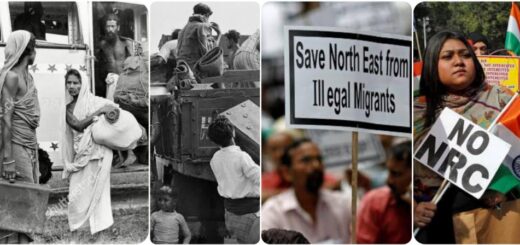










Recent Comments